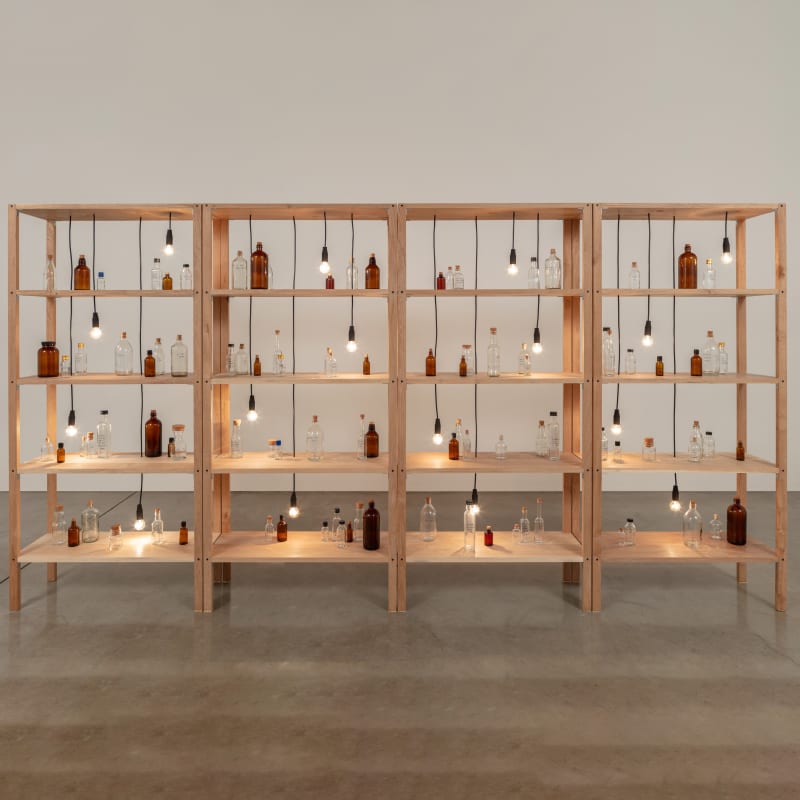Shilpa Gupta
'There is so much we experience as human beings, and not all of it can be expressed through verbal language. There is still space for other languages, and art is one of them.'
Shilpa Gupta (b.1976, Mumbai) is drawn to how objects, places, people and experiences are described and defined, and asks how these definitions are played out through the processes of classification, censorship and security. Engaging in dialogues between territories and languages, between intimacy and public life, Gupta's artworks and installations map how power and social structures create psychological borders in the political landscape.
Untitled (2009), exhibited at the 2019 Venice Biennale, is a large mechanical gate, not unlike one you might find guarding private driveways in exclusive neighbourhoods. Gupta’s gate, however, has a menacing aggression all its own. As it swings back and forth as if haunted, it hits the gallery wall with force, cracking and breaking it. Her flapboards, such as Words Come from Ears (2017–18), resemble utilitarian devices at airports or train stations, yet they also appear conscious, displaying words that don’t convey information but rather surprise the viewer with phrases that might invert or question conventional moralities. For, In Your Tongue, I Can Not Fit is a title based on a poem by the fourteenth-century Azerbaijani poet Nesimi that Gupta has used for two related works (2017–18). The result of Gupta's research into poets who have been jailed but whose work remains undimmed, one work is a large-scale multi-channel sound installation that gives voice to 100 poets who have been jailed over the centuries, while the other is a series of bookshelves with books of poetry by imprisoned poets. Each book on the shelf is made of gunmetal and is inscribed with a poem of resistance.




